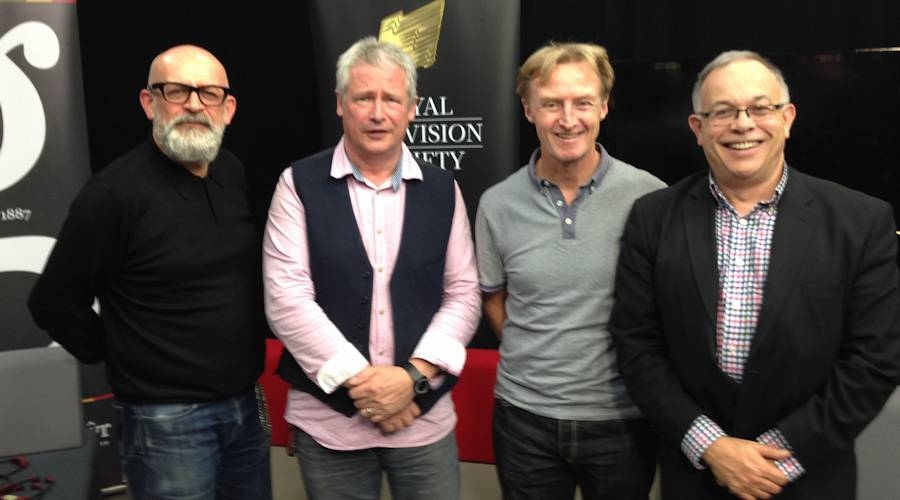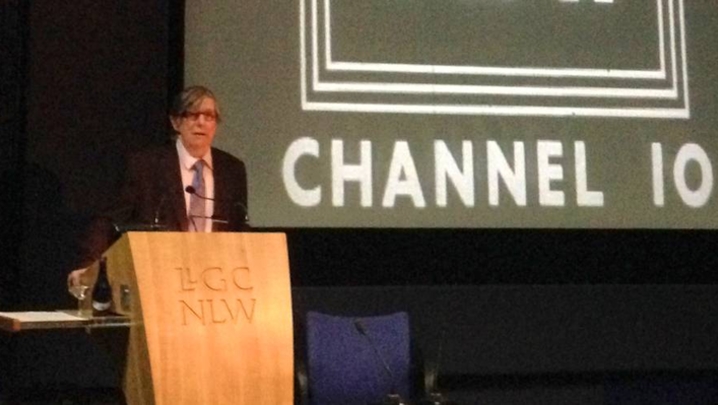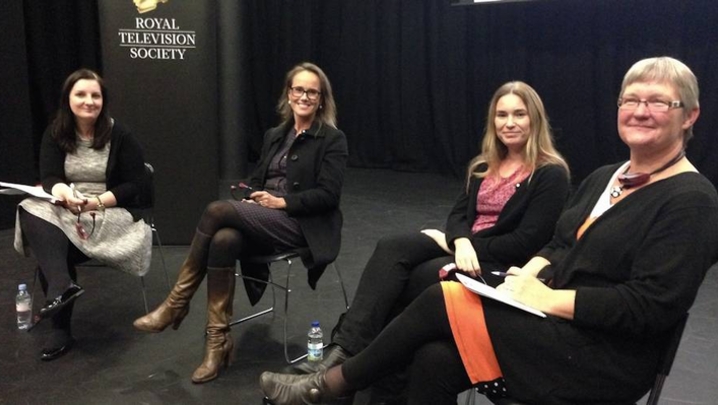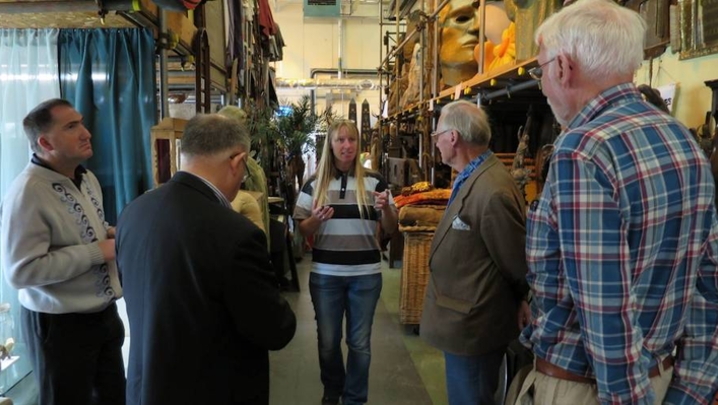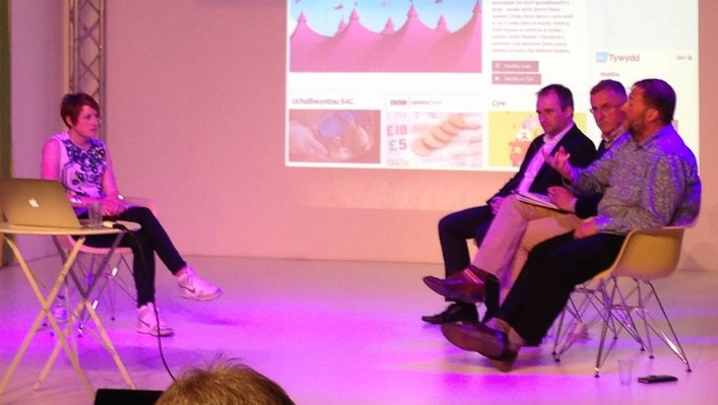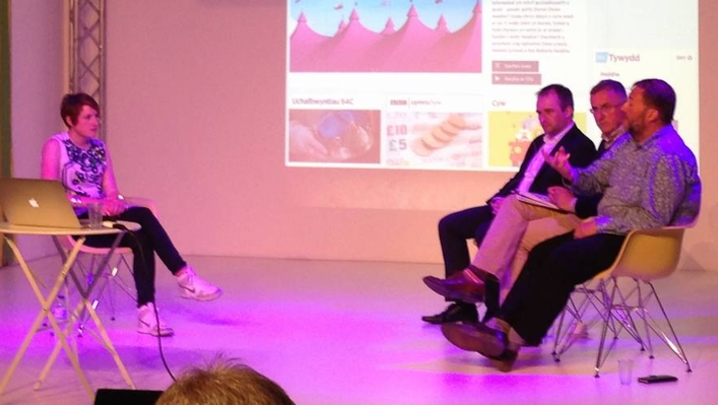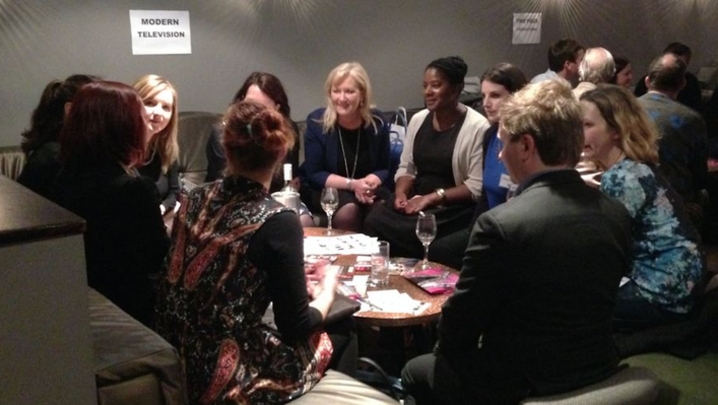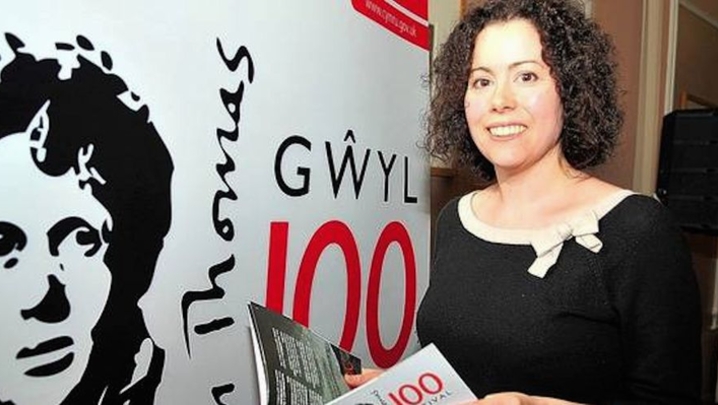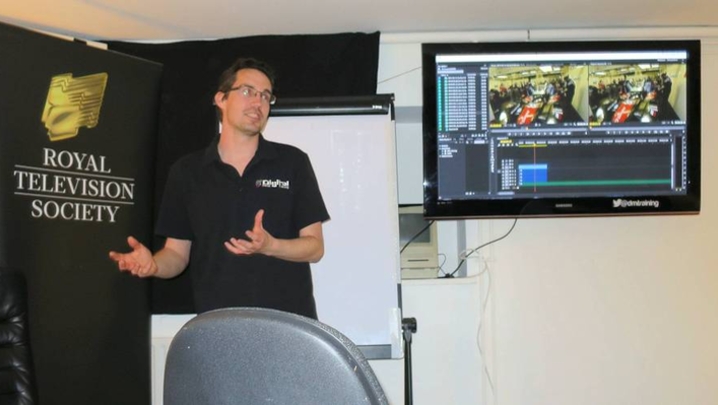(Above, Graeme Park (Glyndŵr University), Mike Wright (Glyndŵr University), Tim Hartley and Hywel Wiliam)
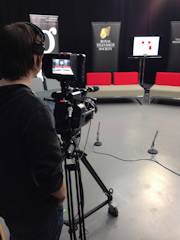 On the 22nd October, the Wales Centre joined the Institute of Welsh Affairs in a 'coffee shop' debate on the future of Welsh broadcasting, in the TV studio at Glyndŵr University in Wrexham. The discussion was chaired by the University’s Graeme Park, and was recorded by students from the department of Broadcasting and Journalism. In a pre-recorded video message, Ken Skates from the Welsh Government expressed concern about the weakening position of broadcast media in Wales. Hywel Wiliam then gave a brief overview of the key features of the current communications market.
On the 22nd October, the Wales Centre joined the Institute of Welsh Affairs in a 'coffee shop' debate on the future of Welsh broadcasting, in the TV studio at Glyndŵr University in Wrexham. The discussion was chaired by the University’s Graeme Park, and was recorded by students from the department of Broadcasting and Journalism. In a pre-recorded video message, Ken Skates from the Welsh Government expressed concern about the weakening position of broadcast media in Wales. Hywel Wiliam then gave a brief overview of the key features of the current communications market.
Karl Davies from the BBC Trust argued the case for the creation of a service licence for all of BBC Wales’ output. Currently, BBC Wales' television services are included within annexes for the BBC 1 and BBC 2 service licences. There was a lively debate about how the Licence Fee regulations could be adapted to cover viewers accessing BBC services online. Only two audience members said they were still watching ‘linear’ live television regularly. Most were using on demand services like Netflix.
The event was also attended by media students from Coleg Cambria. Several of them had developed their own online video projects, displayed via social media platforms. They admitted that they spent as much, if not more, of their time watching short form video rather than mainstream TV content.
Wrexham is very close to the border with England, and research by Ofcom and the BBC has shown that many people in the town get their television services from transmitters in England. However a straw poll showed that only two people were receiving their TV services from the north west, and the point was made that in this age of broadband connectivity access to services was a matter of choice.
An edited video of the discussion is now available in Glyndŵr University's YouTube site. (59 mins).

